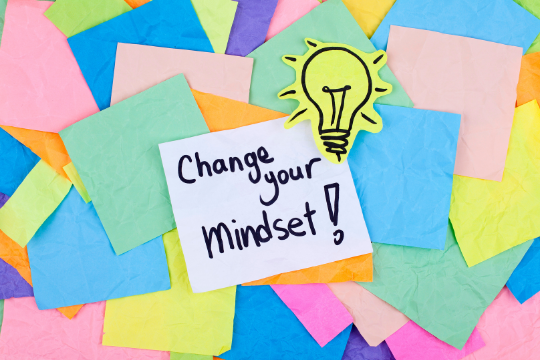Equipping future generations with the skills needed in tomorrow’s world will inevitably include making sure they have a growth mindset. Teachers need to do more than just teach the regular subjects and skill sets, but to inspire a particular kind of mentality ready for overcoming challenges with creative solutions that foster growth.
What is a Growth Mindset?
A fixed mindset believes people are bound by limited innate qualities, while growth mindsets believe that real talent and skill come from effort. In a fixed mindset, people are afraid of taking risks and making mistakes. In a growth mindset, successes and failures are both seen as opportunities to learn and grow. In a fixed mindset, people believe that their intelligence or talent are just fixed traits.
In a growth mindset, the brain is considered a muscle that gets stronger with use, and is more accepting of challenges. A growth mindset sees a challenge as an opportunity to learn and improve. This means students will thrive in situations where they need to make an effort, take risks, and learn from mistakes.
The following are characteristics of a growth mindset:
-Creativity is very important in learning
-Problem solving is the key to success
-Mistakes are opportunities for growth
-Every student can achieve greatness with hard work
3 Ways Teachers Can Instill a Growth Mindset into Students
It is important for teachers to remember that many students believe their skills are something they cannot change, and therefore might feel like any time spent trying to improve is a waste. Teachers can help students develop a growth mindset by encouraging them to keep moving towards their goals, no matter how much work it takes. Here are three ways this can be done:
Set Up Your Classroom for Student Success
Growth mindset lesson plans with proper set ups ensure that students are given opportunities throughout the day to problem solve, take risks and think outside the box. The more students are given these opportunities, the more they will believe that their abilities can change and grow with time.
An example of a growth mindset prompt could be for students to explore the idea of how they can get more done in one hour than what might normally take them two hours. What would need to happen for this task to be completed faster?
Another example would entail encouraging students to try something new for the mere purpose of ensuring continuous exposure to different ways of thinking and behaving.
Teach Students to Problem Solve
Using daily problem sets in the classroom is a great way for teachers to encourage growth mindset thinking. These problems should be challenging but not impossible, and students should be given explanations for why their answers might be wrong. Having the opportunity to continually work on these problems will help students see that learning consists of more than just getting an answer right, but figuring out what concept they did not understand.
Formative assessments can be used to give immediate feedback so students get to keep working on the problem and get help quickly. Using formative assessments will also give teachers insight into the specific areas students might need more help in, and therefore can be able to work on these skills with them directly.
Stop Talking About Intelligence as an Inherited Trait
Many people believe that their intelligence can be measured by tests like the SAT, but this leads to discouraging fixed mindsets in students. Teachers can push against this idea by emphasizing that intelligence is not something they are born with, but the result of hard work and perseverance.
Growth mindset sayings for students could be:
“Today we are going to try something new and share what we discovered.”
“There is no such thing as failure when you learn from your mistakes.”
Why a Growth Mindset Is Crucial for Students to Learn
Students with a growth mindset have increased motivation and academic achievement compared to those who have a fixed mindset. This means that students can truly flourish if they believe that their abilities are something they can develop through effort.
Students who believe intelligence is fixed will resist challenges to avoid looking unintelligent or insecure. Those who believe that intelligence can be developed are more likely to embrace challenges and work hard. Furthermore, when it comes to facing challenges, such as topics they’re struggling with, those with a growth mindset are more likely to keep trying to get better, while being less harsh with themselves if they don’t excel as much in some areas as others.
By believing that mistakes and failure are actually stepping stones towards success, the students of tomorrow will have more resolve to find opportunities for growth where difficulties are presented. They’ll see hard work and creative thinking as more valuable than innate talents.
Teachers must understand that developing a growth mindset is not an easy task. It will take time and effort for students to see that their abilities can change and grow, but teachers play an essential role in helping them see this.
SchoolCues is an all-in-one school management system for small schools with limited budgets and resources. Our solutions include admissions and enrollment, online payments, student information system, gradebook, communications, parent engagement, donations and fundraising, alumni management and more. Schedule a demo with us today.
